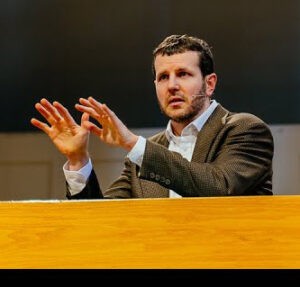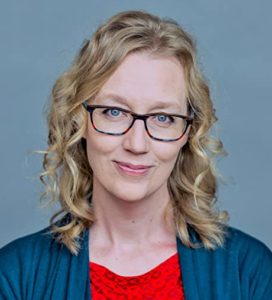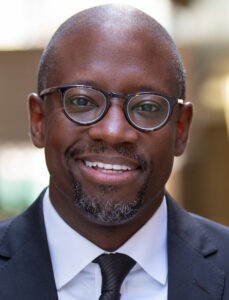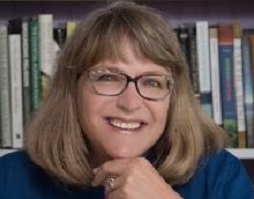Editor’s note: This story has been updated at the end with additional comments from Beth Allison Barr and Anthony Bradley.
Maybe 2021 was the year of feeling threatened by smart women.
That is, if you’re a white male conservative evangelical or Calvinist pastor. If Twitter were printed on ink, barrels would have been spilled last year debating the person and work of at least four Christian women the TheoBros love to hate: Beth Moore, Beth Allison Barr, Kristin Du Mez, and Karen Swallow Prior. Not to mention the slandering of Vice President Kamala Harris as a “Jezebel.”
The vitriol is so strong that one Reformed seminary reportedly has made questions about some of these women litmus tests for admission.

Daniel Kleven
On Dec. 31, Daniel Kleven of Minneapolis tweeted out a photo of an email he had received from a friend who had applied for admission to Bethlehem Seminary, the Minneapolis school started by influential Reformed theologian and pastor John Piper. Kleven is a former student and employee at Bethlehem.
“FYI, if you apply to Bethlehem Seminary, be ready in the interview to answer questions about” and he listed Critical Race Theory, Aimee Byrd, Kristin Du Mez, Thabiti Anyabwile, Russell Moore, and Tim Keller. “Answer wrongly, and you will be declined and steered toward another school.”
Byrd is a Christian blogger and author who challenges theologies of male headship. Du Mez is a history professor at Calvin College and author of the book Jesus and John Wayne. Anyabwile is a Black male pastor who writes for The Gospel Coalition but has advocated for women serving as pastors and for reparations for slavery. Russell Moore is the former head of the Southern Baptist Convention’s Ethics and Religious Liberty Commission who resigned last year rather than continue fighting SBC ultraconservatives who opposed his advocacy for women who said they were victims of sexual abuse in churches. Keller was the founding pastor of Redeemer Presbyterian Church in New York.

Andy Naselli
The Dec. 24 letter from an unnamed friend of Klevens’ said: “I need to tell you about a conversation I had with BCS. I reapplied this fall. … I interviewed with Andy Naselli and it was bizarre.”
The prospective student said he was asked:
- What he believes about Critical Race Theory.
- Whether “gay Christianity” is acceptable.
- Whether complementarians should read Jesus and John Wayne.
- If he had read and agreed with Byrd’s book.
- What he thinks are the most pressing social issues of the day.
Then the prospective student was asked to give yes or no answers to a list of names of people, as to whether they were “extreme” or not.
More importantly, the prospective student said Naselli spoke more about Du Mez’s book and said that he and three other notable complementarian theologians had been texting among themselves about “how to handle her.” Those three were Denny Burk, Jonathan Leeman and Kevin DeYoung.

Kristin Kobes Du Mez
Du Mez and Burk, who leads the Council on Biblical Manhood and Womanhood, previously engaged in a hot Twitter thread in November, in which Burk accused Du Mez of supporting homosexuality.
And after Kleven’s tweet, Du Mez tweeted that Burk had reached out to her to say the claim about the “how to handle her” conversation was false. But there has been no denial of any of the other charges in the prospective student’s email. And none of the other men involved has responded publicly about it. And the prospective student has stood by his account.
Naselli serves as associate professor of systematic theology and New Testament at Bethlehem Seminary, which recently has been rocked by a series of accusations about an abusive work environment that has led to multiple resignations. Naselli himself has been accused of spiritual abuse by at least 12 current and former seminary students, according to published reports. To date, neither the seminary nor its parent church, Bethlehem Baptist, appear to have investigated the allegations.
Although Naselli has not publicly responded to Kleven’s charges, his own Twitter posts make clear his position on the debate at hand. On Nov. 24 he tweeted a link to an article published by the Council on Biblical Manhood and Womanhood and highlighted this section: “Du Mez, Barr, Tisby, etc. ‘all share a dangerous approach to theology via the disciplines of sociology and history. … They are sowing the seeds of a deconstruction that goes far deeper than race, gender, and politics.’”
“It was the female authors who repeatedly earned the most disdain from a group of white men whose entire theology is built upon the premise of male headship.”
While the Calvinist attacks of summer and fall 2021 addressed both men and women, it was the female authors who repeatedly earned the most disdain from a group of white men whose entire theology is built upon the premise of male headship.
BNG previously covered the debates about Barr and her book The Making of Biblical Womanhood and about Beth Moore’s departure from the SBC and about Du Mez and her book Jesus and John Wayne and about the prior’s attempt to live in the conservative world of the SBC with a voice of centering reason.
The heated debates have carried over into 2022 already, with one notable Twitter thread setting the prime example.

Anthony Bradley
On Jan. 5, Anthony Bradley, professor of religious studies and director of the Center for the Study of Human Flourishing at The King’s College in New York, tweeted: “The main cause of the vitriol against Du Mez et al is that the TGC, SBC, DG, 9 Marks, Acts 29, Calvinist etc. world never saw itself as a sociological object of critique. There is now an entire academic world focused on their failures & Reformed men are losing their minds.”
(See Bradley’s entire tweet sequence unrolled here.)
His shorthand references here are to the major Reformed groups shaping so much of the theological debate online through conferences, blogs, videos and an aggressive defense of their particular narrow beliefs. These are The Gospel Coalition, the Southern Baptist Convention, Desiring God, 9 Marks and the Acts 29 church-starting network.
Bradley’s tweet immediately drew hundreds of responses, including a retweet from Du Mez, who recommended reading every reply to the end. Clearly, Bradley calling out the anxiety created among the mainly white male TheoBros about powerful women countering their theology struck a nerve.
Bradley himself added that the world of Desiring God and The Gospel Coalition “is a Christian culture lacking epistemic humility and discourages self-critique. Internal critics are called ‘anti-gospel.’ They built an entire platform based on critiquing *everyone* but themselves & taught an entire generation of pastors to do the same.”
This is the very essence of an analysis piece I wrote for BNG last August on the current trend of labeling any theology you disagree with as “antithetical to the gospel.”

Diana Butler Bass
Progressive author Diana Butler Bass replied to Bradley’s tweet with an observation that this is not a new trend. She wrote: “They’ve also successfully ignored, silenced, or punished those who formerly made these same critiques. I know. I’m one of their previous targets. 25 years ago they attempted to ruin me. Social media was unavailable to me then. I had no tools to rally support. They held the cards.”
Dozens and dozens of comments followed, some repeating typical Calvinist critiques of Du Mez (who, by the way, teaches at a school literally named after John Calvin) and the other women. But the majority of responses affirmed Bradley’s points, expressed appreciation for the dialogue and added their own stories of being shunned or oppressed.
Also of note: All the women being trolled by the TheoBros are white. And these women have spoken mainly from their own experiences as white women. Left unspoken most of the time is the experiences of Black, Latina and Asian women who also are well-equipped to go head-to-head with men in academic debates about theology. That’s not necessarily, though, because white authors have been silent on racial issues but because the TheoBros either don’t read or don’t comment on the Black and brown scholar and authors.
There are plenty of Black female theologians teaching and writing today on the same subjects as Barr, Du Mez and others. But the Black scholars don’t appear to merit any attention from these white males.
“There are plenty of Black female theologians teaching and writing today on the same subjects as Barr, Du Mez and other. But the Black scholars don’t appear to merit any attention from these white males.”
Robert G. Callahan II, an attorney in Waco, Texas, replied: “When you start providing an internal critique to racism or lack of multi-culturalism, you’ll be treated like Black folks.”
A Twitter user from Medford, Ore., identified as Real Housewife of Medford, added to this thought: “After I read @bethallisonbarr’s book, I wondered why she left Black women and Black evangelical churches out. She herself has addressed and regretted this blindness. But like so many people she addressed her own oppression first, which then opened her eyes to the oppression of others. Having said that, I think we can agree that the only thing that can change people is Jesus — and a good first step is these white women fighting to get Jesus INTO their churches. Where he has not traditionally been.”
In a subsequent conversation, Barr clarified that she is, in fact, very aware of how Black women are ignored and attempted to address that in her book. In chapter six, she wrote about how Black women preachers are ignored by evangelicals and says the misunderstandings of biblical womanhood are rooted in white supremacy. She also quotes Black theologian Katie Cannon. Barr also has addressed this issue in other blogs and on Patheos and Black Christian News. While she wrote the book from her perspective, she wants to engage a conversation that includes all women, she said.
As this back and forth illustrates, the intersection of white supremacy and male headship is a twisted knot, even though the presenting issue for the TheoBros today is attacking white female scholars.
There’s also another twist to this issue, however, as pointed out by Bradley, when he retweeted the first draft of this story. He wrote: “Where are all the smart Black men? Ans: they are discouraged from completing PhDs & are cattle-prodded into church planting, urban ministry/non-profits, etc. Yet, everyone demands theology and biblical studies books by Black and brown authors. We need less ‘urban ministry’/’church planting’ tracks and more PhD tracks for Black students in seminary. And they need to go for free (that’s what the mainline did).”
Related articles:
It’s an easy dismissal of an idea you disagree with, but what does it actually mean for something to be ‘antithetical to the gospel’? | Analysis by Mark Wingfield
Du Mez sees link between sexual abuse cover up and complementarian theology
Jesus and John Wayne exposes militant masculinity in the age of Trump | Opinion by Alan Bean
I knew the truth about women in the Bible, and I stayed silent | Opinion by Beth Allison Barr
For Godself’s sake, stop picking on the small church where Beth Allison Barr’s husband serves as pastor | Opinion by Mark Wingfield
BNG column sparks Thanksgiving Twitter war of words between complementarians and two female scholars | Analysis by Rick Pidcock


